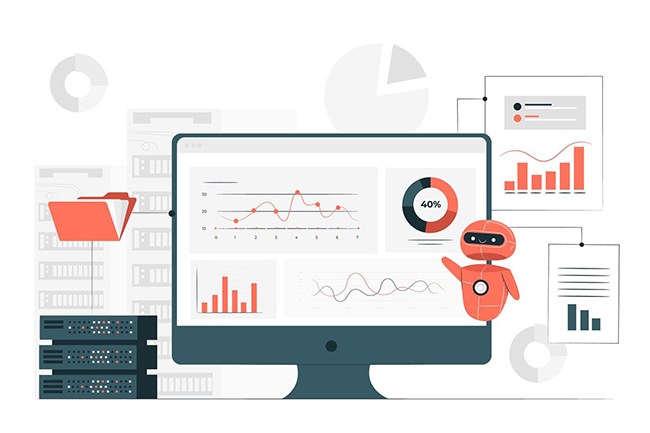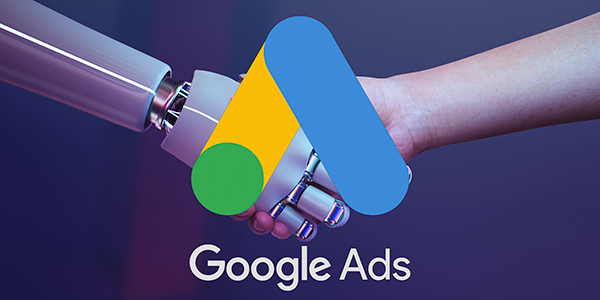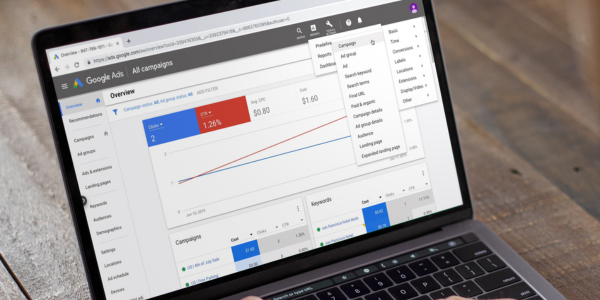content
Modern business is gradually beginning to understand the ways to use the limitless possibilities of artificial intelligence. These trends are affecting more and more companies at different stages of their development, but most are still learning the effectiveness of available tools. Today, in an article by ADV Advantage, we will consider how innovations in the field of artificial intelligence will revolutionize business development and become your personal tool for achieving global success.
What is artificial intelligence in the modern sense?
Artificial intelligence or machine learning is the ability of a computer system to apply the experience gained as a result of certain actions. The most famous AI today, Chat GPT-4, has already learned to generate realistic images, analyze complex statistical data, provide comprehensive answers to questions, check program code for errors and write it completely, connect and use third-party modules, and even develop a marketing strategy. Of course, for the best results, you need to formulate your query in detail and provide reports with statistical data, as AI does not have access to your Google Ads account. Let’s take a closer look at classic and non-standard ways of using AI in modern business.

Email marketing and cognitive technologies
How often have you received irrelevant advertising emails? If we are talking about Google Ads, it is already the Google Discovery advertising campaign that uses artificial intelligence to analyze your online behavior and determine the relevance of ads to the needs of users of the Discover network. However, you can always go further and customize personalized email offers based on internal data about user purchases, website behavior, and social media interests. Implementing the idea of generating personalized emails with unique offers for each user can significantly increase the number of conversions.
Tracking the impact of content on customer engagement
Along with collecting statistical data on customer engagement with your marketing content, you should use tools to analyze it. Intelligent systems are able to quickly determine the effectiveness of content according to a number of signals (for example, the moment of loss of interest) and provide recommendations for its improvement. Tracking is best combined with A\B testing of different variants of messages with relevant content. The results can be segmented depending on the type of audience for which a particular content is most relevant.
Interaction channels and their analysis
A targeted and effective marketing strategy always involves a clear understanding of the list of the most effective traffic channels. Cognitive analytics tools can take into account many factors, such as demographics and a list of previous interactions, to identify the most profitable channels and improve understanding of where marketers should focus their attention.
Conversion forecasting
Some traditional business sectors are highly dependent on the frequency of purchases, such as seasonality in agriculture. Since this industry implies a clear repeatability of actions from year to year, machine intelligence is able not only to determine the most optimal time to create advertising creatives, but also to determine the most relevant offer for the client based on their past purchases and the type of equipment they use. Additionally, for a B2B client, you can calculate the approximate profitability of their business and change the communication strategy in the period following the conversion by the appropriate amount.
Identifying trends
Smart technologies are significantly ahead of classical marketing analysis in terms of speed and productivity. Saved time and resources can be invested in tracking the latest market trends, offering users innovative products and services that competitors do not yet have. Since trends are usually temporary, there is a risk of wasting budget in case of a sharp change. However, predicting the period of popularity of a particular area will help to make the right decision, which is also facilitated by artificial intelligence.
Fighting fraud with AI
It’s not the most obvious way to use cognitive technologies, but the experience of existing and already closed companies can prevent fraud in marketing. Since fraud has a very negative impact on business in terms of material, reputational, and time losses, it is worth paying more than enough attention to preventing it. For example, there are AI services on the web that operate with a database of influencers with whom a number of companies have already built business relationships. Such platforms not only show detailed statistics on the reach and type of their audience, but also allow you to determine the value of a blogger according to the needs of your business, as well as identify the risks you may face.
Conclusions
The possibilities of cognitive technologies are endless, which is why tools are constantly emerging that can not only facilitate the work of marketers, but also provide new opportunities for forecasting, analyzing, and implementing innovative solutions to the marketing strategy. It’s not recommended to grab onto artificial intelligence like a magic wand, because some aspects of a marketer’s work require pragmatic human knowledge, and the use of AI can be noticeable and negatively perceived by the audience. To begin with, it is worth introducing artificial intelligence to optimize internal business processes, such as content management or information analysis. Only after you have a clear understanding of the advantages and disadvantages of AI systems, you start building a modern marketing path that is in close interaction with computer intelligence. If you have any additional questions about implementing AI in your online business, please contact ADV Advantage specialists who have been working in the field of online marketing for more than 10 years and know how to properly apply artificial intelligence to increase productivity and achieve your goals.
Subscribe to our newsletter


